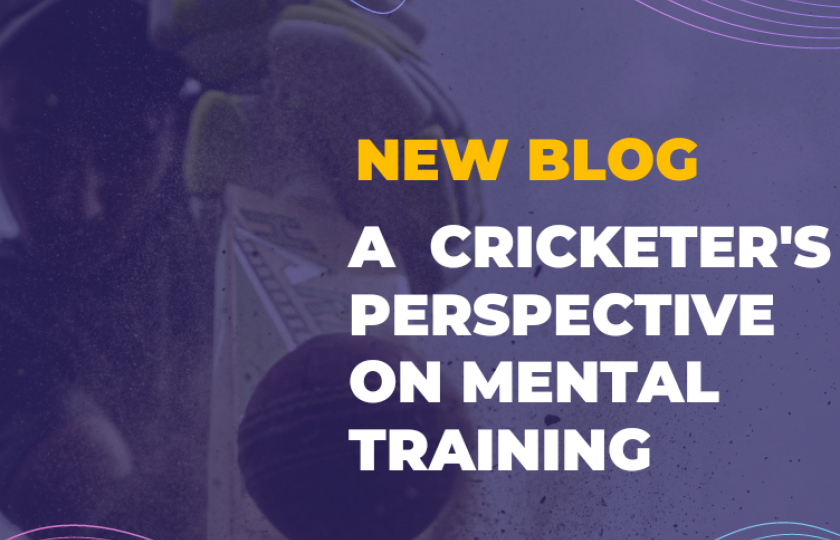
MENTAL TRAINING FROM A CRICKETER’S PERSPECTIVE
What is mental training to me? For me, mental training means working on my mind, as a result of which working on my body becomes that much easier. It gives me the freedom to back my strengths and the courage to accept and work on my weaknesses. Mental training is something that should be inculcated into every athlete’s daily routine. It is only then, that results will start to show, just as it has for me.
For a cricketer, mental training comprises of several different exercises and techniques such as; breathing, visualisation and self-talk. All these habits put into practise regularly is what has benefitted me immensely. The feeling of oneness with my mind and my thoughts is the ultimate goal with regards to my mental training, along with the feeling of mental clarity and satisfaction with the work I’ve done. I have done my best to make these exercises a habit for me, and here are some of my experiences with mental training.
Breathing is one of the most important techniques one can use during the course of a sporting activity. It helps restore a normal heart rate, as a result of which your decision making improves and you are less stressed and anxious. Many professional athletes are noticed taking a deep breath before a decisive penalty kick in football or bowling in the penultimate over of a cricket match. I practice breathing exercises while playing for the same reasons they do which is; calming my nerves and clarifying my thought process. Cricket is a game of milliseconds and to be on top of your opponent in those milliseconds is what makes you successful. I practice breathing in between deliveries so that my normal heart rate is restored and I can think clearly on what my next decision should be. I only have the time between the bowler releasing the ball, and the ball being just a few feet away from me to decide what shot I’m going to play. This is what I feel breathing while playing benefits the most.
Visualisation to me, is mentally practicing when it is physically not possible. It creates a strong muscle memory that benefits me exceptionally on my way to play a match, or when I’m unable to practice due to injury etc. It keeps me mentally doing all the things that I would be doing physically. Such as; packing my bag, going to the ground, warming up, wearing my gear and practicing. Visualising some of my best matches and innings helps me stay in touch during injury or when I’m not playing at my best. Visualisation can help significantly when practised regularly.
Many athletes at a high level noticeably talk to themselves while playing. They convert negative thoughts into positive by doing so and instil themselves with confidence. These are some of the very reasons I practice self-talk as well. It helps me stay in the moment and make the right decision. After talking to myself while playing I feel confident in my abilities and find it easier to back my strengths and not worry too much about the outcome.
In conclusion, mental training has become a massive part of who I am as a player and benefitted my game in numerous ways. What has improved most about me due to mental training has been my confidence and my carefree attitude towards playing. Not worrying too much about what’s going to happen in the future and staying focused on the present. These practices will continue to stay with me and help me get to my ultimate goal of mental toughness, as Jasprit Bumrah once said, “Self-belief is my biggest strength. The mental toughness comes into play whenever the chips are down”.